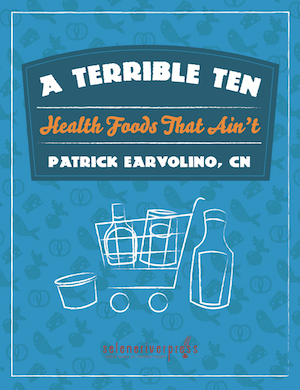So I stumbled on a TEDx Talk that’s had my head spinning ever since. These talks usually get my wheels turning, but this one had a different feel to it. Maybe it’s the magnitude of the topic. Maybe it’s the personal nature of the topic. Or, more likely, maybe it’s the betrayal I felt spelled out throughout the talk.
Titled “The Hidden Side of Clinical Trials,” it shines a bright light on the idea that what you don’t know really can hurt you—or someone you love.
Clinical trials are used to bring new pharmaceuticals (both prescription and over-the-counter drugs) to the general public. As a layperson, I’ve made some assumptions about what this unfamiliar industry looks like. As consumers, we need to trust that certain best practices and watchdogs are in place when it comes to science and researchers. After all, the results are the results. Right?
Now, I’m not completely naive. I’ve dug into the revelation that the sugar industry duped the public into thinking that fat rather than sugar is the cause of heart disease. I realize that well-financed special interest groups develop powerful rhetorical messages and marketing campaigns for the sole purpose of influencing potential buyers, all in the interest of the bottom line over the well-being of the masses.
But if I know all of this, why did I have such a strong reaction to the talk? I think it all comes down to two facts that I’d never even considered before:
- Once started, approximately half of all clinical trials never share the results of their research.
- Of the results that are published, a proclamation of positive results for whatever new drug is being tested is twice as likely as those trials that show negative results.
In the name of the continued good health of my loved ones, I find these practices significantly concerning, and I feel a sense of betrayal by those who choose to work in this profession without total transparency. I want us to have the deep-seated belief that we’re all connected, and we should have each other’s best interest in mind. Always.
Ludicrous, right? I don’t care. I can wish for whatever I want. And that’s what I want. I want people to choose their profession based on how they can raise humanity up rather than make a buck at our expense. I know there will be hiccups along the way, but I believe we can learn from them. Just tell us what adjustments are needed to keep us on track.
In this particular scenario, what influence do we have? An initiative has been started in the UK called AllTrials. As the website explains, “AllTrials calls for all past and present clinical trials to be registered and their full methods and summary results reported.”
It’s a lofty goal with an altruistic purpose. Let’s continue with research, but let’s see the results. All of them. You can support this initiative by signing the petition on their website and/or by making a monetary donation.
Of course, one of the goals of self-healthers should be making intentional, daily choices that lessen our chances of becoming reliant on pharmaceuticals and the results of clinical trials. However, life can be funny in what it throws our way. When we must rely on others to hold the same values as we do, what we don’t know can hurt us.
What new information have you come across lately that made your head spin?
Image from iStock/SIphotography.
 Get self-health education, nutrition resources, and a FREE copy of A Terrible Ten: Health Foods That Ain't ebook.
Get self-health education, nutrition resources, and a FREE copy of A Terrible Ten: Health Foods That Ain't ebook.

